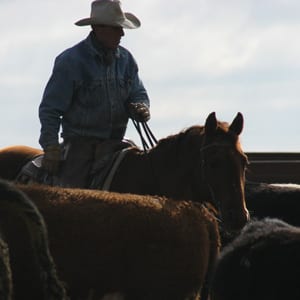The United States Department of Agriculture has confirmed two cases of vesicular stomatitis virus in Otero County, New Mexico, which is about 90 miles south of Ruidoso. This is the first confirmation of the disease in the U.S. since a June 2010 outbreak.
USDA and the New Mexico Livestock Board have initiated an investigation and the farm is under quarantine. Three other unaffected horses located on the farm have been isolated from the positive animals. There are no known traceouts at this time.
Vesicular stomatitis is a viral disease that primarily affects cattle, horses, and swine. Symptoms in horses include blister-like lesions in the mouth, tongue, lips and nose, as well as along the coronary band and on the udder or sheath. Humans can also become infected with the disease when handling affected animals, but this is rare. In humans, it causes flu-like symptoms. Flies are believed to be a vector in the spread of VS, and the virus can be transmitted through shared equipment such as bridles or buckets.
Vesicular stomatitis is a notifiable disease and USDA reported its findings to the World Animal Health Organization. In response, Canada has revised its entry requirements for U.S. livestock and livestock products: “Effective immediately, horses originating from the state of New Mexico will not be permitted to enter Canada. Canadian horses returning from New Mexico will be allowed entry into Canada if additional import requirements are met. In addition, all horses entering Canada from the United States must be accompanied by official U.S. documents certifying that they have not been in New Mexico within the previous 21 days.”
If you are taking horses into Canada, please contact the CFIA (1-(800) 442-2342 or http://www.inspection.gc.ca) for additional information on these requirements.
Agriculture officials in Colorado also advised livestock owners to control flies in order to minimize transmission of the disease and to be cautious with feeding equipment, cleaning tools or health care equipment from other herds.
Vesicular stomatitis is recognized internationally as a reportable disease. What this means is that there are serious economic and regulatory repercussions associated with the diagnosis. When the disease is detected in the United States, other countries may take action regarding the entry of U.S. animals, as Canada has done. Interstate movement of animals is also impacted. Premises containing affected animals are quarantined until 21 days after the lesions in the last affected animals have healed. As a result, quarantine periods can be lengthy.
If you anticipate transporting your horse across state lines, the American Horse Council recommends the transporter contact each respective state veterinarian’s office prior to departure to determine if there are any restrictions or additional entry requirements.








